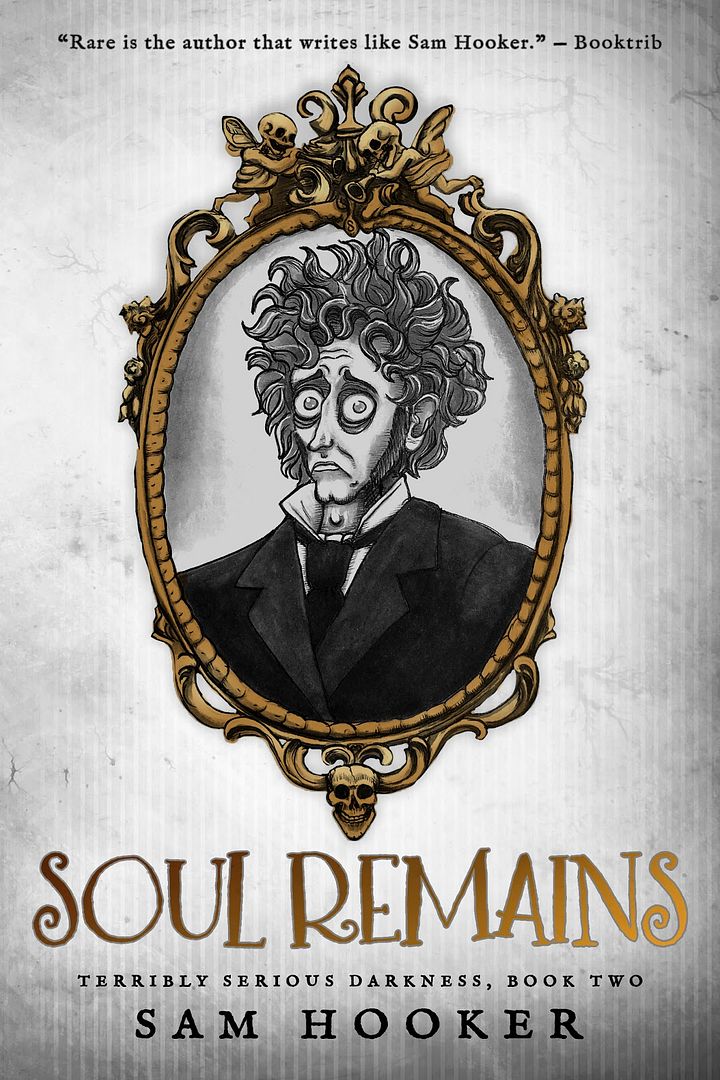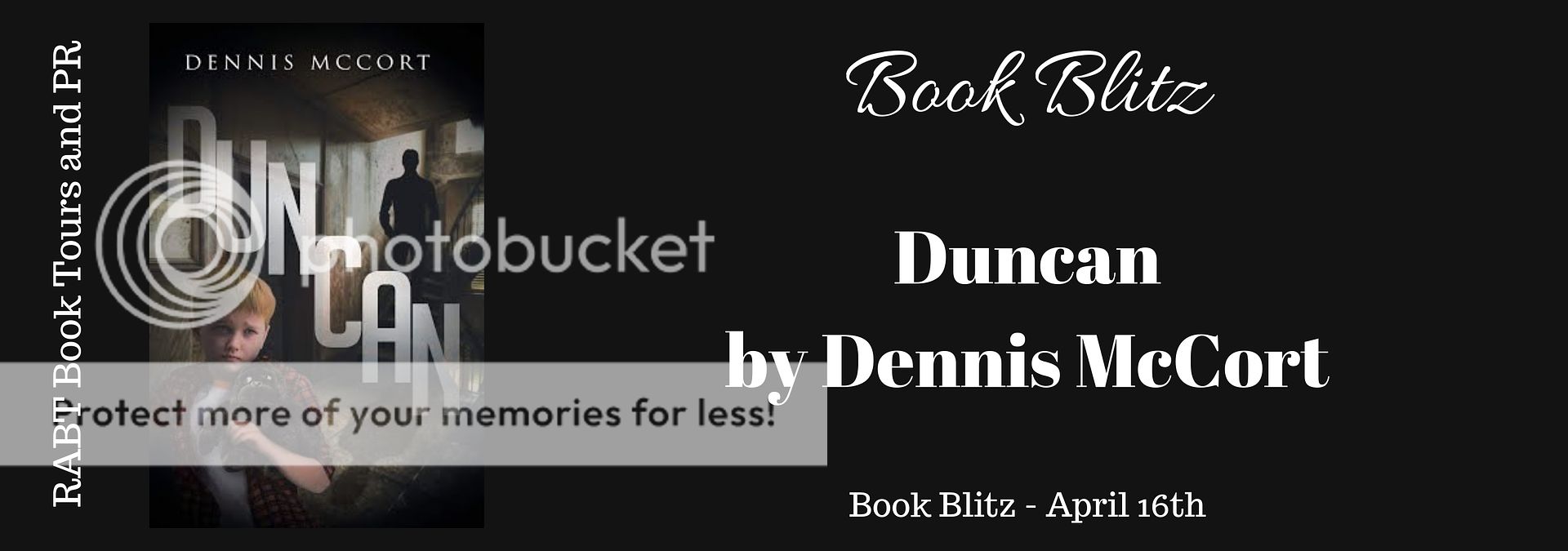
Date Published: February 2019
Publisher: Gatekeeper Press
A cunning pederastic serial killer nicknamed “Santa” is making his way up the East Coast from New Orleans to Boston, leaving a trail of young bodies in his wake. Santa covers his tracks along the way by working as an itinerant bass player in a series of jazz combos. At the same time, the Driscoll family – Mark, Julie and their nine-year-old son Nate – who live in an upstate suburb of Syracuse, New York, struggle to come to grips with Mom’s quadriplegia following a horrific auto accident. The suspense builds to a fever pitch as these two plot strands approach each other for the inevitable confrontation. All this tension is heightened by the mystery of Duncan, Nate’s stuffed-toy gorilla, who is not only the boy’s beloved companion but becomes a kind of family totem, and, later on in the story, so much more.
This is a novel not only for readers addicted to thrill rides and maddening suspense, but also those who are curious about the abnormal psychology of the pedophiliac killer. The book gives food for thought as well as a kind of perverse satisfaction for the imagination and senses. It is a thinking reader’s thriller.
It was the best cut at the ball little Joey Simmons had ever taken, but he fouled it back over the chain-link fence. As catcher, Zach Moss had the job of retrieving it. He slipped down through the hollowed-out area under the fence, looked both ways before crossing the empty street lined with warehouses and loading docks, and darted across to where the ball lay nestled against the curb—just a few feet in front of the charcoal van. It was Sunday afternoon and the area was deserted. As Zach reached down, out of the corner of his eye he spotted the tall man in the black polo shirt leaning casually against the van’s open sliding door, kicking a crushed paper cup to the curb.
“Whatcha got there, pal?”
“A baseball,” Zach answered shyly, noticing the van was empty.
“Wow, that looks like a Phillies ball. I’ll bet you caught it off the bat of Ryan Howard or some big slugger like that, huh? Could I have a look?”
Zach hesitated, torn between advancing and retreating, politeness and caution. That hesitation sealed the boy’s doom. The man made as if to reach for the ball, but grabbed the little wrist holding it instead. It was a deft move, a practiced move, and lightning fast, carried out with the larcenous dexterity of a seasoned pickpocket. The boy was so stunned that he forgot to scream.
The sliding door slammed shut and the man was behind the wheel pressing the accelerator before the boys on the ball field knew what was happening. He had kept himself on the sidewalk side of the van during the entire abduction, carefully hidden from their view. Zach knew he’d done something very wrong, even though he hadn’t meant to. All those endlessly repeated parental warnings raced across his mind, all the “Don’t ever listen’s” and “Always avoid’s” and “Run screaming from’s.” Could he have another chance? Please! He’d do it right this time. He splayed his fingers against the window, crying out—too late—to his friends as the van pulled away. He hadn’t noticed that its windows were dark-tinted, transparent only from the inside.
Passing through the industrial outskirts of the city, the van headed up Old York Road into the northern suburbs. It neither sped nor lagged and it obeyed all traffic laws. The man at the wheel enjoyed a supreme confidence in his trapping skills. It was a craft, an art even, and he had mastered it. Soon there was more wilderness than houses, until at some point the van turned left off the main road onto a poorly marked crossroad that, in short order, forked at a dirt road. The van took the dirt road across a tiny rustic bridge spanning a creek, continuing then across a cleared, open field on the right, at the end of which stood a modest white colonial house atop a gently sloping lawn. Potted plants overhung the small porch with its two rockers diagonally facing each other on either side of the front door. The place stood in the open, yet was well hidden by hilly wilderness beyond property boundaries. The dirt road saw little traffic.
The van pulled off the road and circled around to the rear of the house, stopping next to the angled steel cellar doors. The man got out, looked around and inhaled deeply, basking in the mellow sunlight of late afternoon. He was alone, the only sound that of the gently rustling trees. He slid open the van’s side door and leaned in, hands braced against the roof, ogling his prey with satisfaction. And lust.
Terror widened the boy’s eyes, making them—and him—all the more alluring to his captor. He cowered, pressed against the corner of his seat, his body balled up in futile self-protection.
“What do you want, mister? Why am I here?” he asked tentatively, knowing full well the man knew he knew why he was there.
“All in good time, Zach, all in good time,” the man chuckled. He’d heard the other kids call the boy by name weeks ago when he first began scouting him. He always made sure, if at all possible, to get a kid’s name before taking him. The process went much smoother that way. Strategic use of a boy’s name soothed the boy with the delusion that, despite appearances, his captor was well disposed towards him. A tactic that would make an adult instantly wary tended to pacify an eight-year-old. He’d learned that the hard way many years ago from the debacle in Austin when the words, “Whaddaya say, kid, let’s hang out,” triggered a shrieking that forced him to start, rather than end, the process with lethal violence. After that, from Atlanta through Nashville and Blacksburg and on up the east coast—it was his first “tour”—he made sure to get the name up front and learned to soften his diction. It was part of his evolution from a seat-of-the-pants amateur predator to a serial pedophile of deadly proficiency.
“Why don’t you climb out of there and come in for a cold drink, Zach? You must be thirsty. Catchers eat a lot of dust. They need to rehydrate all the time.”
“No! I don’t want to! I wanna go home!”
“I’d like you to think you are home—for now.”
“No, I’m not!” the boy cried with mounting panic. He began to whimper.
“Come on now,” the man said, mildly irritated. He extended his powerful right arm inside, like reaching for a prize in a grab bag, and gently but firmly pulled Zach out of the van. Then, bending over slightly while holding onto the boy, he pulled open the already unlocked cellar doors with his free arm.
Instinctively, Zach began to buck. He tried to pull away and squirmed furiously—to no avail. He had never felt such physical strength before. It was like trying to jerk a piece of wood loose from the vice in his father’s basement tool shop. Even when, not so long ago, his father would playfully toss him up in the air and catch him coming down like a medicine ball, it was nothing like the sheer physical resistance, the total control by another, he was feeling now.
The man carried the boy down the steps, bracing him on his hip like a surfboard. They entered a finished basement, though one that had the same dank, musty air all basements have, with or without dehumidifiers. The smell of the air caused a new spike in the boy’s panic, suggesting as it did the mold of the grave. Even at eight Zach was aware of the connotations of mold. The man cuffed him, as if scolding a pet, and got off on it. It was all part of the one-way foreplay.
The man carried him to the far end of the dark basement, which was largely uncluttered by the usual piles of stored junk, as if the house hadn’t been occupied long enough to accumulate much to store. There, well behind the furnace and hot-water heater, was a small, inconspicuous room, walled off from the rest, no doubt originally intended as a study or office. But the man had converted it to a kind of private pleasure cave. Richly paneled and lushly carpeted, hung with lurid pornographic images, both paintings and photographs, of naked children, many interacting with “erect” naked men, the windowless room was the sick expression of what had become the man’s sole reason for being. He had left the door unlocked and ajar for quick and easy sequestering of his latest prey. Lowering the boy onto the quilt-covered king-size bed that occupied more than half the room’s space, he raised an index finger to his smiling lips to shush the signs of panic contorting the boy’s face and body language. Then he leaned forward and switched on the portable CD-player on the nightstand. The soft strains of “So What” filled the room, the opening track of Miles Davis’s cool-jazz masterpiece, Kind of Blue, with the insouciant opening base sequence introducing Davis’s smokey trumpet. It was always the same music, always “So What,” setting the same naughty jazzy mood— anything else would have been unthinkable to him.
As the man pulled his shirt over his head and began unbuckling his jeans, the boy’s whimpering swelled into alternating sobs and shrieks. He had no idea he was playing right into his predator’s game plan, for the man’s lust was spiked above all else by another creature’s helplessness. He wanted the boy to beg for his innocence, his bodily integrity—his life. He craved the dark bliss of godlike power over the destiny of another, especially when that other was fully aware of his own utter dependency. This was his drug, his elixir, immeasurably more potent than the heroin he had tried so many times, which, while bestowing bliss, had also dulled his senses, and he lived for the sharpening of his senses. This got him out of bed in the morning.
“Zach, Zach. It’s all right. We’re just gonna cuddle for a while. Okay? Just lie together and hold each other and make each other feel good, you know?”
“I wanna go home!” the boy bawled in tearful protest, apparently shocked by the urgency of his own voice, for his sobbing escalated, opening up to a pathetic wail fueled by panic.
Its only effect was a quickening of the man’s desire. Stimulus … response. No one could hear them there, and it was all just becoming so delicious. As the man slipped out of his jeans, Zach’s eyes were riveted on the bulge in the crotch of his briefs. At eight, he had just enough sexual awareness to know what that bulge meant. Still, it was his dim but nightmarish sense of what might come afterward that intensified the stabs of panic.
The man lay down on the bed and snuggled up to his prey, whose flinching reflex merely spiked his lust once again. The man was lost within the dark caverns of his desire, the boy trapped within those same caverns.
“This is so nice,” the man breathed dreamily, reaching down deftly to their mutual nether regions while pressing the sobbing boy to him with unnatural strength …
The sun was down and a purplish twilight graced the overgrown area behind the house as a dark figure strode purposefully from the cellar doors in the rear into a little copse of oak and cedar about a stone’s throw away. He was carrying a base fiddle case. But his firm grip and taut right arm left no doubt that the case’s contents were heavier than any fiddle.
After a while, the only sound to pierce the darkening stillness was the rhythmic thrusting of the spade into the soft earth. Far from being drained by the effort of the
cleanup, the man felt juiced, energized, expansive, and, at the same time, utterly relaxed. He reveled in the digging, each thrust of the shovel a little aftershock of that explosion of pleasure for which he lived. Finally, dropping the shovel behind him, he sank to his knees, opened the case and stared for a while at the olive-hued double-strength trash bag that served as a shroud for the lifeless body. Gently lifting the body from the case, he lowered it into its shallow grave, again staring and carefully straightening out both the bag and the body it contained, though without attempting to pose the body in any way. No tableaus, no “necro-symbolism” to titillate the profilers. Just putting it where it belonged.
About the Author

Author Dennis McCort (1941-) was born and raised in Hoboken, New Jersey, the „mile square city“ on the Hudson, in the shadow of Manhattan. He writes of his experiences growing up there in the postwar industrial era before gentrification in his book, A Kafkaesque Memoir: Confessions from the Analytic Couch (PalmArt Press). McCort is now retired from Syracuse University in upstate New York where he taught German language and literature over a long career. He has authored literary studies on German and Swiss writers and on the influence of Zen Buddhism on such Western writers as J.D. Salinger, R.M. Rilke and Thomas Merton. His understanding of Zen, both as scholar and practitioner, i.e., from both outside and inside, helped him to add layers of complexity to the fascinating personality of the pedophiliac protagonist of Duncan. McCort has also written a comic novel, titled The Man Who Loved Doughnuts, about a young professor who fails to get tenure at his upstate university and spends a lost weekend in lower Manhattan. It is available as an Amazon Kindle eBook. Duncan is his novelization of a macabre seed-concept coming from his wife Dorothy: that of a serial pedophiliac murderer on a collision course with a young boy whose only defense is his stuffed toy gorilla. Both McCort and wife describe the book as a “thinking man’s thriller.”






















